Outsider in the White House (20 page)
Read Outsider in the White House Online
Authors: Bernie Sanders,Huck Gutman

Perhaps the high point of the campaign for me so far has been the meeting Phil Fiermonte put together a few weeks ago in Montpelier, the state capital. The goal was to bring volunteers together to discuss the role they could play in the campaign. Seventy-five people turned out to learn how they could be effective campaign workersâa great turnout.
One of the challenges that any serious campaign faces is how to deal effectively with volunteers. If you give them “make work” that is not useful or challenging, they're not going to come back. Nobody wants to waste their time. If you ask people who hate making phone calls to use the phone, they're gone. A good campaign is successful when it matches volunteers with the work they enjoy and are interested in. We need people to canvass and to maintain booths at the state fairs and on street corners. We need volunteers to hand out literature and to make phone calls, to work in the office in Burlington, to get out the mailings, and to run our computers. In the fall, we'll need supporters to help out in our regional offices. We have a lot of work to do, and this meeting is to get volunteers to do it.
I was surprised and gratified by the number of low-income people who attended. For these folks, Gingrich's policies are not issues for intellectual debate. They are life-and-death matters of food on the table, health care, education, and Medicare premiums. When Phil first suggested the idea of the meeting, I had my doubts, because it took a lot of work to organize it. But I was wrong. We were bringing some great people into the campaign.
While we seem to be attracting more working-class and low-income volunteers, we're not generating quite as much enthusiasm and support as we have in the past among progressives, who, historically, have been the backbone of our movement. I'm not complaining. The new volunteers are hard workers and know their communities very well.
The second goal I set was to do better with direct mail in Vermont. While this is an area where being an Independent places me at a real disadvantage compared to the Democrats and Republicans, there is no question that we should be able to improve greatly on our past performance.
Direct mail is an expensive proposition when you're talking about 250,000 voters. In the last campaign we sent out about 35,000 pieces targeted mostly to hunters, to deal with the gun issue and to counter the NRA's vehement opposition to my candidacy. Historically, the Republicans mail to every household in the state, and the Democrats are not far behind. They usually push their entire ticket, so the state or national parties can pick up the cost. For us, everything has to be paid for out of my campaign funds.
This year we got smart and started early. We took advantage of resources that have always been there. Many professional and occupational groups in Vermont must register with the state, and these lists are available to the public for free, often on computer disks. Using them has enabled us by mid-August to send mail to 95,000 Vermonters.
Our plan of action is not complicated. We get people who are well known within the various professions to write letters of support, we enclose our standard literature and a return envelope with a contribution form, and we mail out bulk rateâabout eighteen cents a letter. And we are making an exciting discovery: these mailings have almost paid for themselves; in fact, some of them have actually made money. In other words, we're able to do mass mailings to Vermonters at no cost to the campaign. So far, we have sent out letters to doctors, lawyers, and every teacher, nurse, physical therapist, chiropractor, farmer, and university professor in the state. Now we are buying lists of senior citizens and environmentalists.
Our success with bulk mailing encouraged us to come up with an even bolder plan. What would happen, we brain-stormed, if we picked a district in which we did well in the last election, and sent a mailing to every single household? Well, the results of the first few tries are in, and we did well, getting the one percent response necessary to cover our costs. An advantage of this kind of mailing is we can use a “postal patron” address (which means mail goes to
every
residential address, instead of to a named addressee), which is the cheapest form of mail. The disadvantage is that a number of the people you are sending mail to don't vote. But frankly, for us, this is not so much of a problem. We want to communicate with those folks, too.
In general, then, our mailing efforts are going far better than ever before. We're communicating with more people, we're raising more money, and we're drawing more supporters into the campaign. I'm very excited about this aspect of our work.
Â
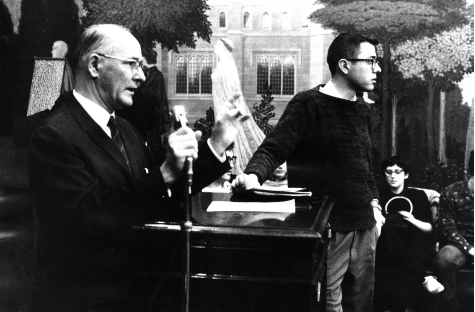
© University of Chicago Library 2015
Congress of Racial Equality (CORE) meeting (1962). I was a steering committee member, and here I'm standing beside George Beadle, University of Chicago president.
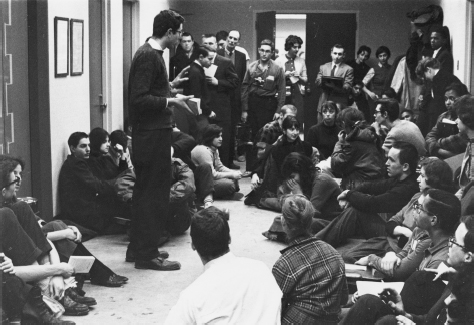
© University of Chicago Library 2015
Congress of Racial Equality sit-in (1962). I spoke to protestors on the first day of action. At the time, CORE was working to end segregation in Chicago public schools.
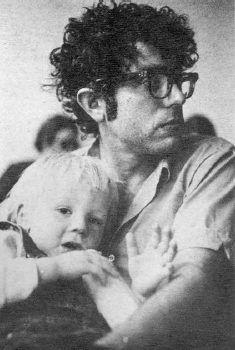
© Erik Borg 2015
With my son, Levi, then two and a half, at a Liberty Union Party meeting in the fall of 1971.
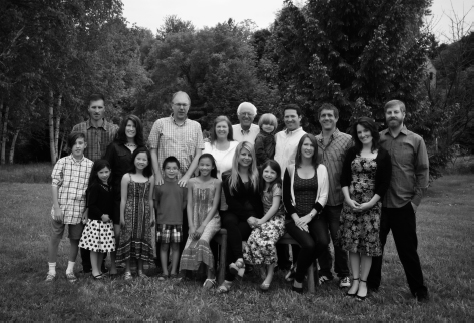
© Ambient Photography 2015
The Sanders clan. I'm happily sandwiched between my wife, Jane, and youngest grandson, Dylan.
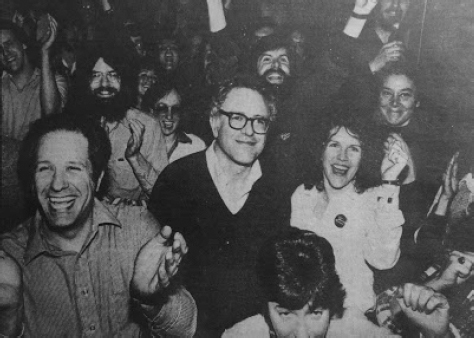
The Burlington mayoral campaign (1981). Jane and I watch the returns on television amid a crowd of supporters.
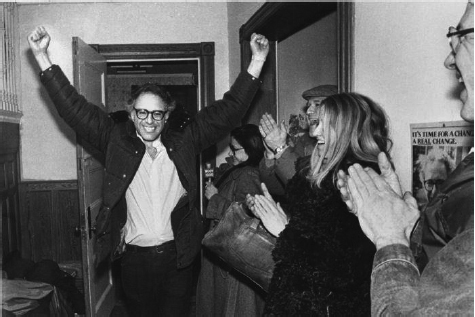
© Rob Swanson 2015
The victory party. My political career was launched with the defeat of Gordon Paquette in the race to become Burlington mayor.
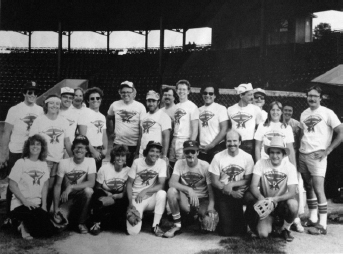
In uniform with the People's Republic of Burlington softball team.
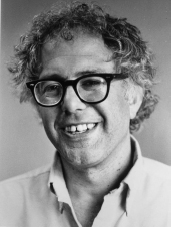
© Rob Swanson 2015
A portrait from the early '80s from Burlington weekly the
Vermont Vanguard Press
.
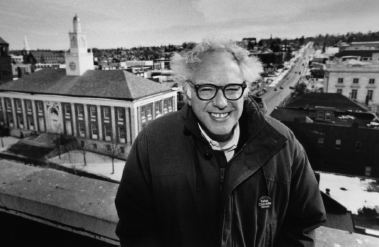
© Rob Swanson 2015
On the roof of the old Hotel Vermont building, overlooking Burlington City Hall. After four successful terms as mayor, I decided not to run for reelection in 1989 and set my sights elsewhere.